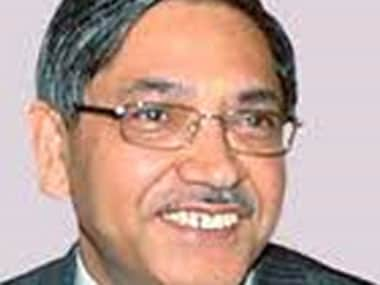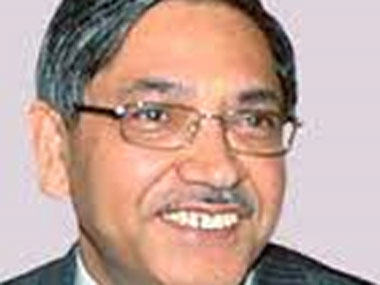Mumbai: Reserve Bank deputy governor KC Chakrabarty today attributed the high incidence of stress on the books of public sector banks (PSBs) to poor credit appraisal and management and asked them to be economical with recasts, if not end the system of restructuring.
Chakrabarty, who carries a reputation for airing his frank views, said the banks were “complacent” during the good times since 2006-07 in their credit management process and wrongly blame the global to financial meltdown for high NPAs.[caption id=“attachment_1233931” align=“alignleft” width=“380”]
 RBI deputy governor
KC Chakrabarty.[/caption]
Using data from the last 20 years on the asset quality front, Chakrabarty said state-run banks, which control 75 percent of the system, report over 86 percent of the non-performing assets.
In the last 13 years since 2001, the banks have added over Rs 6 lakh crore in NPAs and have shown over Rs 4 lakh crore in reduction, he said, adding a bulk of the reduction is driven by the write-offs (Rs 1 lakh crore) than the actual recoveries.
Asking banks to be quick in decision-making, Chakrabarty, who himself was a banker before coming to the RBI, said the problems with the accounts start with the appraisal process itself as loans are granted without proper diligence and NPA accounts of the past are also getting credit.
A majority of the write-offs involve big accounts, he said, underscoring the need to hold the senior management which clears the big loan proposals, accountable for its decisions.
Impact Shorts
More ShortsIt is, therefore, necessary for bankers to be very diligent in the loan appraisal process, the deputy governor said, adding that in many cases undeserving cases, which have been NPAs in the past, have also received loans from banks.
“Wrong appraisal is leading to diversions, leading to over- leverage, leading to fraud, leading to NPAs…they are all inter-related,” Chakrabarty said, asking the banks to rely more on available credit information.
Chakrabarty said in the last three years, state-run banks alone reported over Rs 16,690 crore in frauds and underscored the need for making senior management, who clear large loan proposals, more accountable.
Chakrabarty also lashed out against the practice of restructuring which is being used as a tool of NPA management by the banks.
“We must move away restructuring, there should not be any category called restructuring.
“The moment it is restructured, it should be declared as NPA, there should not be any technical write-off…be prepared for that, unless you that you might not be able to get out of the mess,” he said, adding that deserving cases where a recast is viable, should be restructured.
“If you believe that a company is going to survive, please do that but not to give him a lease of life and putting the things under the carpet.
Restructuring of unviable units should be avoided. In fact, our grievance is that those who are viable with the restructuring are not getting the help,” the deputy governor said.
Chakrabarty also blamed the 2008 move of allowing restructuring with retrospective effect as something which killed the credit quality in the system.
“Worst thing has happened in 2008 with the restructuring guidelines. A one-time exemption on restructuring guidelines on the retrospective effect has
killed the credit quality in terms of restructuring,” he said.
Chakrabarty also hauled up those pitching for lesser regulation, saying the NPAs grew in the times of flexibility on the regulatory front and got squeezed when the regulation was tightened.
He underlined the need to insist on getting equity from the promoters before going ahead on any loan proposal or on restructuring, pointing that this is a very important aspect not followed in practice due to which promoters go scot-free.
Harping on the large-ticket loans, Chakrabarty pointed to data showing the least amount of stress from retail and agri lending in the last two decades.
He said banks report stress on these two segments because there is no write-off for such accounts.
Chakrabarty added that banks should be more liberal while dealing with the smaller accounts as this segment is the most vulnerable one and gets affected the most quickly in any situation of stress.
PTI


)

)
)
)
)
)
)
)
)



